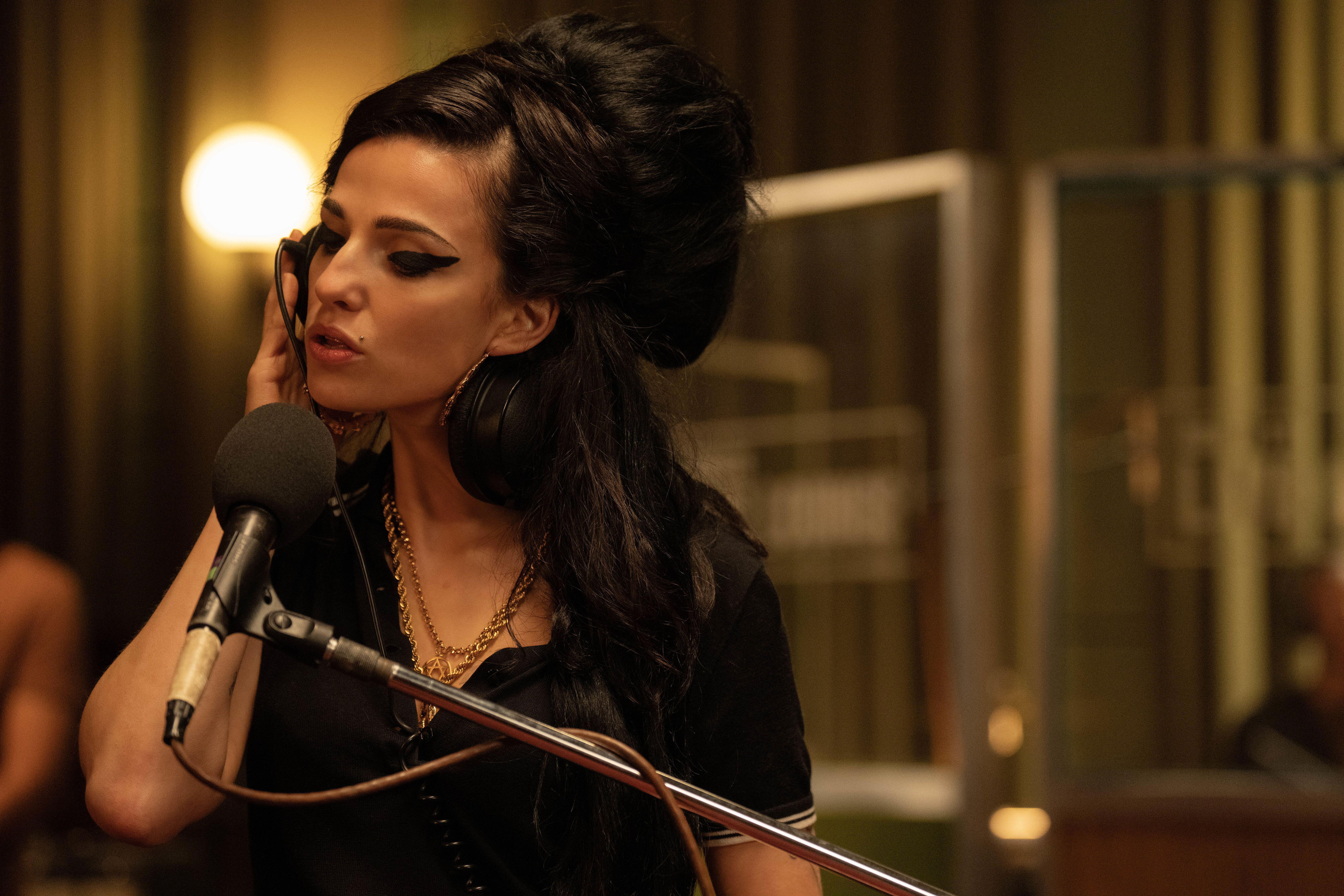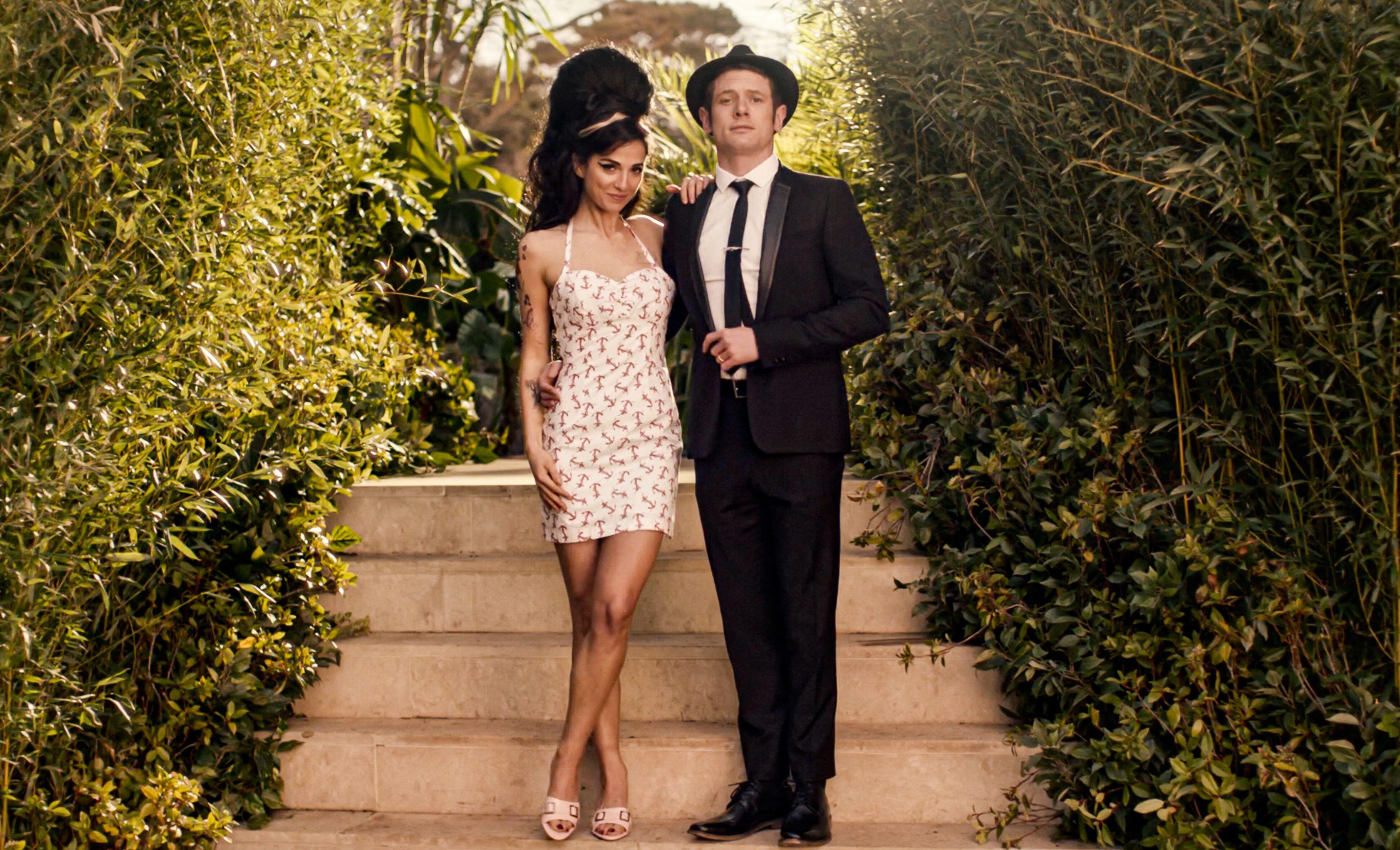
It's one of the most anticipated movies of the first half of 2024 — and one that comes complete with a perfect narrative for the big screen. The Amy Winehouse bio-pic, Back To Black, is full of drama, passion, romance, conflict and tragedy. But what makes this latest from director Sam Taylor-Johnson such a crushing disappointment is that it isn't just her rise to mega-stardom that's a tragedy. The film is as well.
The by-the-numbers narrative starts with Winehouse (newcomer Marisa Abela) as a cheeky, confident North London teenager with a love of jazz who rises to the top very quickly but is determined to manage her career in her own way. "I ain't no Spice Girl!" she reminds her agent. On her way up, she meets the man who turns out to the be the love of her short life, Blake Fielder-Civil (Jack O'Connell) and the combination of their intense and turbulent relationship and the pressures that go with life in the glare of publicity bring all her personal frailties to the fore — addiction, obsession and an eating disorder among them. She died suddenly in 2011 from alcohol poisoning at the age of just 27.
This is the first dramatized version of her life. Until now, it had been confined to documentaries. Asif Kapadia’s Amy, released in 2015, was showered with critical acclaim and awards, including an Oscar and a BAFTA, and performed strongly at the box office. In fact, it seemed the only people who were unhappy with it was the Winehouse family, with dad Mitch especially vocal about his reservations. A second documentary, Reclaiming Amy, was designed to address those concerns and was screened on the BBC in 2021.
This time round, the grittiness of Kapadia's doc is replaced by a much softer focus, one that's at odds with the issues that came to dominate Winehouse's life in her later years. Worse still, her life is reduced to one, very large cliché, made up of a series of smaller ones. One scene stands out in particular. You can almost hear the bottom of the barrel being scraped as her manager tries to persuade her to go to rehab. Surprise, surprise, she says no and her father thinks she’s fine. Sounds familiar?

It’s the film’s lowest point, even though the rest is peppered with moments that run it a close second. The Libertines' over-used Don’t Look Back Into The Sun is the soundtrack to Amy and Blake's first date. Her own songs are the background to solo scenes. The ever-present press pack constantly bays for just one more shot. A rain-soaked romantic moment begs for "Is it raining? I hadn't noticed." And that narrative is little more than a shopping list.
There's one big plus and it really stands out among the carnage. After a small role in Barbie, Abela gives a star-making performance, looking and sounding the part and doing all her own singing throughout. We buy into her character so that when she cuts a sad and solitary figure at the moment of her greatest professional triumph — receiving her fifth Grammy — her emptiness is tangible. And the answer to the implicit question about whether it’s all been worth it is only too clear. Whether the role will do the same for her as Elvis did for Austin Butler remains to be seen but, based on this, we can certainly expect to see more of her.
The rest of the cast doesn't fare so well, but that’s down to the script rather than their efforts. Eddie Marsan as dad, Mitch, and Lesley Manville as her beloved gran, are both class acts and do their utmost to lift the film out of the doldrums but, ultimately, that rests on Abela's shoulders.
The most perplexing character is O'Connell's Fielder-Civil, who receives almost total absolution for any involvement in Amy’s numerous problems. As the story is told through her eyes, it follows that she would be reluctant to see anything other than good in him, but it’s still hard to believe he wouldn’t have influenced her in some way. For once, the film doesn’t take an overly simple route and avoids painting him as the villain, but instead he's contradictory. When he talks about his own problems, he reveals issues that haven’t even been hinted at throughout the film. They’re simply plucked out of thin air.
The parallels with another music bio-pic of ill-repute — despite its four Oscars — Bohemian Rhapsody are inevitable. But what makes Back To Black such an overwhelming let-down as a film is that it has so much going for it and squanders just about all of it. It's a sorry sight and Winehouse's story deserves better.
Back To Black is released in UK cinemas on 12 April and in the USA on 17 May.







